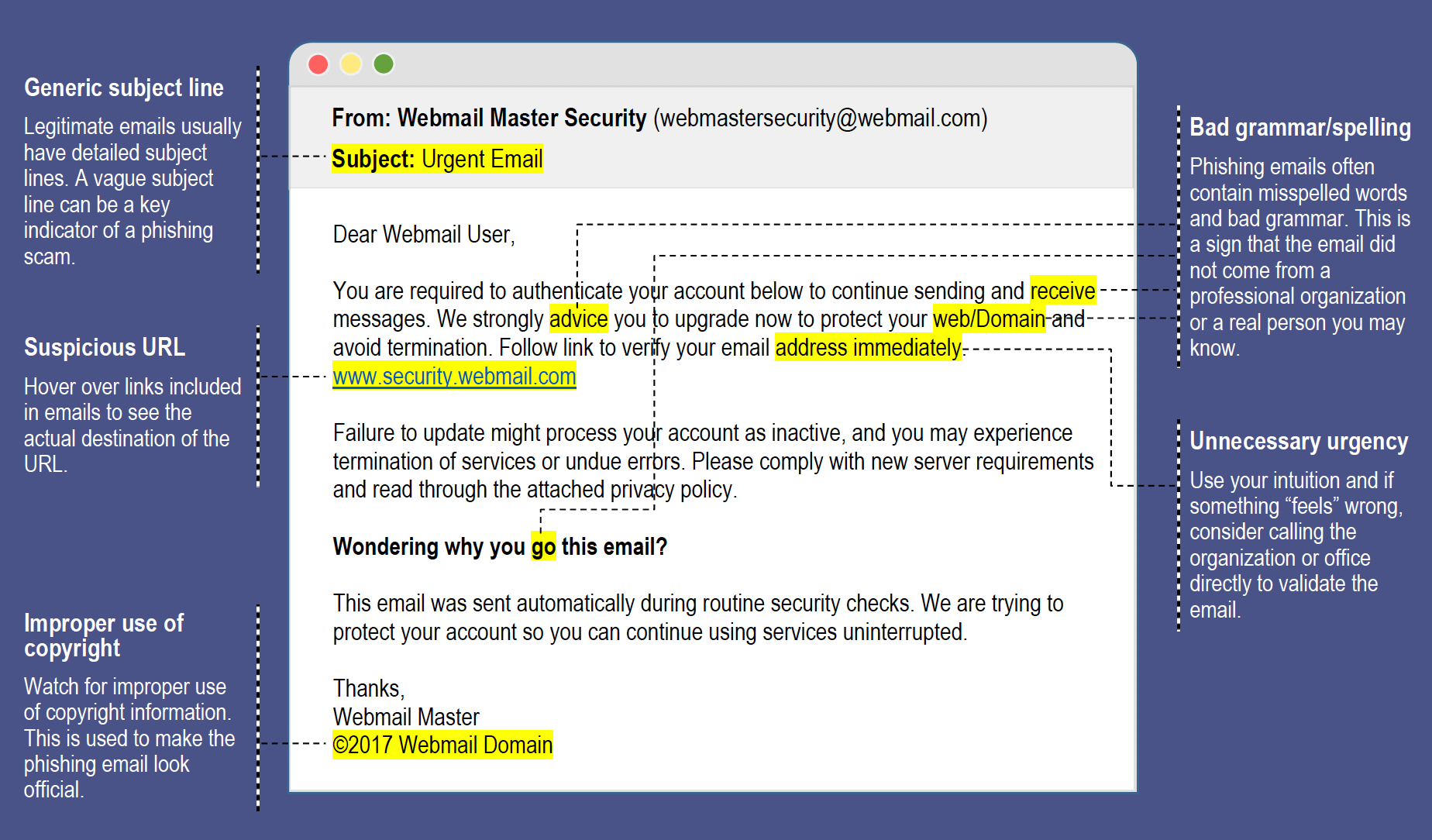Scams are illegal schemes where dishonest people attempt to steal your money or identity. There are several ways that people try and defraud, like a phone call from a stranger posing as a government official or law enforcement, a potential employer or landlord asking for personal and financial information before ever meeting you, or emails from unknown addresses requesting information urgently. Below are informative links and descriptions of some of the most common scams students and scholars encounter—learn how to recognize the signs and protect yourself.
Email Scams Offering Job Opportunities from UC Merced Accounts
An active email scam involves student accounts offering part-time job opportunities that purport to originate from UC Merced email accounts, but are fraudulent. Cybercriminals use sophisticated methods to steal money and data. The fraudulent email may look like it comes from a UC Merced email address (myaccount@ucmerced.edu). These emails allege to have a part-time job opportunity, usually as a personal assistant, that will not affect any other employment you may hold. This is not a real job offer. If you have questions about employment on or off campus, please consult your international advisor. Job Scams
Rental Listing Scams
These scams take advantage of trusting renters with a "too good to be true" rent price. They often list a vacancy ad on reputable rental listing sites and ask for a security deposit and first month’s rent in exchange for keys. Once the scammer secures the money, they disappear and the tenant is left with no place to live
Scammers create rental ads with real or fake information about homes or apartments that have been previously listed for rent or sale. The “owner” or “landlord” will often email the prospective renter claiming they are out of town for a job or overseas for missionary work and avoid responding to detailed questions about the property. Despite attempts to see the property, the scammer will explain that the home must rent without being seen due to their current long-distance living situation.
Rental scammers will try to include a lot of unnecessary detail to appear legitimate to prospects. They will mention lawyers or agents and added security measures, like address verification, to build trust and authority with their victim. At the same time, they remain vague and distant about property specifics or reasons for not accepting alternative forms of payment. They might request wire transfers through companies like Western Union or MoneyGram, which are untraceable and non-refundable. This is a huge warning sign. Here is a link with further infomation on this kind of scam andwhat to look out for before transferring money: Rental Scams
Fraudulent Phone Calls
Beware of phone calls from strangers claiming to be a government agency or law enforcement official. These people can make it look like they are calling from a legitimate phone number. Scammers might demand you send money or gift cards immediately, and threaten arrest or deportation if this is not done right away.
Common Themes
- The caller ID or phone number looks like a government agency or police
- A claim is made that you owe money or have committed some kind of fraud
- A caller or letter will use fear, threats, and intimidation to get what they want
- A scam requires immediate action
- A scam includes punishment (often threats of deportation or arrest) for not acting immediately
- A scammer will keep you on the phone for a long time and will not let you hang up to call back later
- A scammer will use lots of legal-sounding language such as federal regulations; and visa fee; to sound as legitimate as possible
Phishing Websites or Emails
Scammers may also try to get your sensitive information through email. This is called “phishing.” Phishing is “the activity of defrauding an online account holder of financial information by posing as a legitimate company.” Some scams use websites that may look legitimate to capture personal or financial information. These false websites could use a recognizable business of organization's name or logo, but the URL will be unfamiliar, or will not begin with https:// which keeps your information secure from hackers.
Phishing emails usually come from strangers and can feature a vague subject line, job offer, or request personal information with unnecessary urgency. See the example below to identify characteristics of a phishing email.


